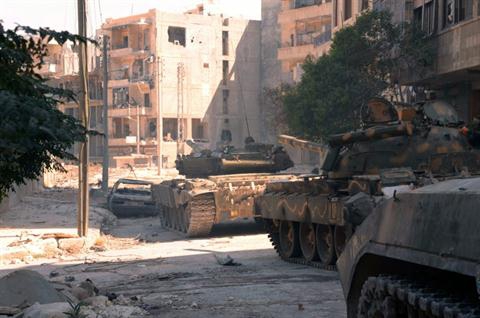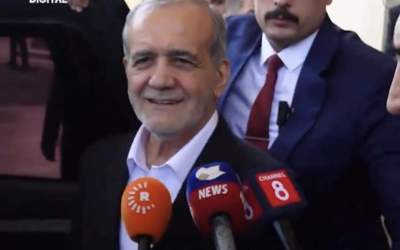Sunday 7 October 2012 - 14:47
Story Code : 7040
Qatar urges Syrian rebels not to kill Iranian prisoners
DUBAI: Qatar, a major supporter of Syrian rebels, urged them on Sunday not to kill Iranians seized two months ago near Damascus, after the captors threatened to start killing their 48 prisoners.
Qatari Prime Minister Sheikh Hamad bin Jasim al-Thani made the appeal following a request from Iran, an ally of Syrian President Bashar al-Assad, to secure a release of the captives.
The Syrian rebel al-Baraa brigade said on Thursday it would start killing the Iranians unless Assad, battling an 18-month-old uprising, freed Syrian opposition detainees and stopped shelling civilian areas.
A statement on the brigade's Facebook page on Sunday said it had extended its deadline by 24 hours at the request of mediators. The rebels say the captives are members of Iran's Revolutionary Guards. Tehran says they were pilgrims visiting Shi'ite Muslim shrines.
"As a general policy in the state of Qatar, we don't accept the killing of prisoners," Sheikh Hamad told Al Jazeera television. "We also don't accept further escalation of the situation in Syria. We agree that all parties have their demands, but the basic principle is not to kill prisoners."
The Baraa Brigade, which initially threatened to kill the Iranians after seizing them in early August, said in a video released on Thursday that negotiations over their fate "failed as a result of the betrayal of the Iranian and Syrian regimes".
"We give the Syrian and Iranian regimes 48 hours to release prisoners, stop the shelling against unarmed civilians and the random killing of innocents or we will kill an Iranian prisoner for each martyr," said a rebel wearing camouflage fatigues.
He was standing in front of three lines of mostly bearded men who appeared to be the Iranian prisoners.
The brigade said at the time of the men's capture it had documents showing their involvement in the Revolutionary Guards.
Insurgents fighting to topple Assad accuse Iran of sending fighters from the Revolutionary Guards to help Assad's forces crush the revolt.
The Islamic Republic denies the accusation and said the men were planning to visit a shrine on the outskirts of Damascus. Iranian media later quoted Foreign Minister Ali Akbar Salehi as saying some were retired soldiers or Revolutionary Guards.
Sheikh Hamad also urged Arab states to take action in Syria, given the impasse between major powers at the United Nations Security Council. "The situation in the Arab world generally should move and something clear should be done," he said.
"The Security Council represents a legal obstacle to any clear intervention to stop what's happening in Syria and the American elections also cast their shadows on what's happening at the moment."
Western powers have made clear they are unwilling to intervene militarily and the Security Council will not sanction action against the wishes of Russia and China.
"There are some Arab states that think this (intervention) is a good idea ... while other states are neutral in this regard," Sheikh Hamad said.
Saudi Arabia and Turkey also strongly back the mainly Sunni Muslim Syrian rebels, while Shi'ite Iran supports Assad, whose Alawite minority is an offshoot of Shi'ite Islam.
Syrian authorities say Qatar, Saudi Arabia and Turkey are to blame for the violence in Syria, where activists say 30,000 people have been killed, because they have sheltered, financed or armed anti-Assad rebels. The three countries fault Assad's military crackdown on months of protests for the bloodshed.
The Iran Project is not responsible for the content of quoted articles.
# Tags











